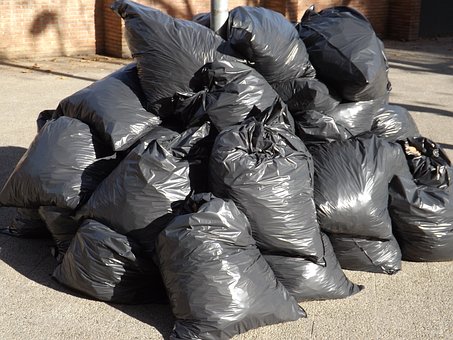Welcome to KDS Environmental
Reliability
100%
Affordability
100%
Professionalism
100%
Reputation
100%
 It is obvious that the quantity of household waste produced is increasing every year at an alarming rate, and federal governments are under pressure to expand existing garbage dumps or build brand-new ones to accommodate the waste that is being produced.
It is obvious that the quantity of household waste produced is increasing every year at an alarming rate, and federal governments are under pressure to expand existing garbage dumps or build brand-new ones to accommodate the waste that is being produced.
What is Hazardous Home Waste?
Home waste is leftover from household products. Dangerous household waste are household products which contain chemicals that have the potential to impact plants, the health of people and animals and are detrimental to the environment when dealt with poorly
Inappropriate management of household waste has the potential to be extremely detrimental to the environment, individuals, and animals. What many of us might not recognize is that many of those typical household products contain corrosive, harmful, or flammable chemicals that can be dangerous to the environment if not handled or managed correctly.
Dangerous household waste should not be disposed of in the same way as regular waste. For instance, gasoline can be buried in the ground, can impact rivers, and find its way into drinking water. The hydrocarbons in motor oils or pesticides have the potential to bio-accumulate in freshwater fishes and can find its way in the food cycle. Burning contaminated materials leads to the release of harmful chemicals and fumes in the air. When released into the environment, these chemicals are dispersed over large areas, thereby affecting the health of persons over a wider area.
Some of these chemicals stay in the systems of plants and animals for a very long time and might enter the food cycle when the impacted plants and animals are taken in.
 Bioaccumulation of dangerous substances in the systems of plants, animals, and people has the potential to impact their reproductive lives, growth, impair the function of various organs such as the liver and kidneys, impact the functioning of the central nerve systems and immune systems of human and animals and some have been listed as known carcinogens.
Bioaccumulation of dangerous substances in the systems of plants, animals, and people has the potential to impact their reproductive lives, growth, impair the function of various organs such as the liver and kidneys, impact the functioning of the central nerve systems and immune systems of human and animals and some have been listed as known carcinogens.
How Can You Tell a Product is Hazardous?
Check out the labels of products. In Iuka and other parts of the country, labels are required for all products. These should provide information on the constituents of the products, consisting of signs and words, to show the threat to animals, people, and the environment if mishandled.
How To Tell If Products Are Hazardous?
Constantly check out the label of products in your household and make it a routine of checking out the labels of a product before deciding to acquire them.
What Can You Do to Handle Hazardous Waste?
Purchase Eco-friendly Products – Experts agree that the best way to manage waste is to not produce it in the first place. You can start by avoiding the purchase of products which contain chemicals that are harmful to people, animals, and the environment. Purchase those products that are eco-friendly or friendly to the environment.
Safe Product Storage – Ensure that dangerous products are kept in a safe place, that their containers are not harmed, do not have any leakages to reduce the risk of polluting water sources, land, people, animals, plants, and the environment. Ensure that corrosive products like acids are saved in separate areas from other dangerous products.
Check products regularly to ensure that there are no leakages and broken lids or bulging sides.
Constantly store products in their original containers to prevent unintended usage.
Ensure that these products are saved in a place where children and animals have no access to them.
Disposal of Products – Disposal of products should always be the last resort. Why? Due to the fact that there are no safe methods of disposing of contaminated materials. You can prevent the problem of contaminated materials disposal by either choosing eco-friendly products, recycling the product, giving the excess products to friends, neighbors, or family or buying smaller sized volumes of the product.
 If, however, disposal is unavoidable, then you should get rid of the waste in the way prescribed on the label.
If, however, disposal is unavoidable, then you should get rid of the waste in the way prescribed on the label.
Although there are laws to control the handling and use of large quantities of contaminated materials, the existence of laws to control the typical small quantities created at the household is non-existent. For this reason, the obligation for the management of contaminated materials falls squarely on the shoulders of the contaminated materials generators.
Protection of the environment can only happen when you contribute in finding innovative ways to re-use, recycle, or reduce waste. This is essential if we are to secure the environment and health of future generations. Keep In Mind That Waste Management is Your Business, My Business, Our Business.
if you are in Iuka or Anchorage, Kyote, Rossville, Amphion, Crown, Bigfoot, Big Foot Colonia, Schattel, Miguel, Poteet, call us now!
We are experts in environmental clean-up, and we can help you with eradicating dangerous items in your home. Our number one goal is to ensure that the environment is safe for everyone to live in, and your health is protected. Get in touch with us today and get a free, no-obligation quote.
We are the best eco-friendly company you can trust in Anchorage, Kyote, Rossville, Amphion, Crown, Bigfoot, Big Foot Colonia, Schattel, Miguel, Poteet and Iuka.